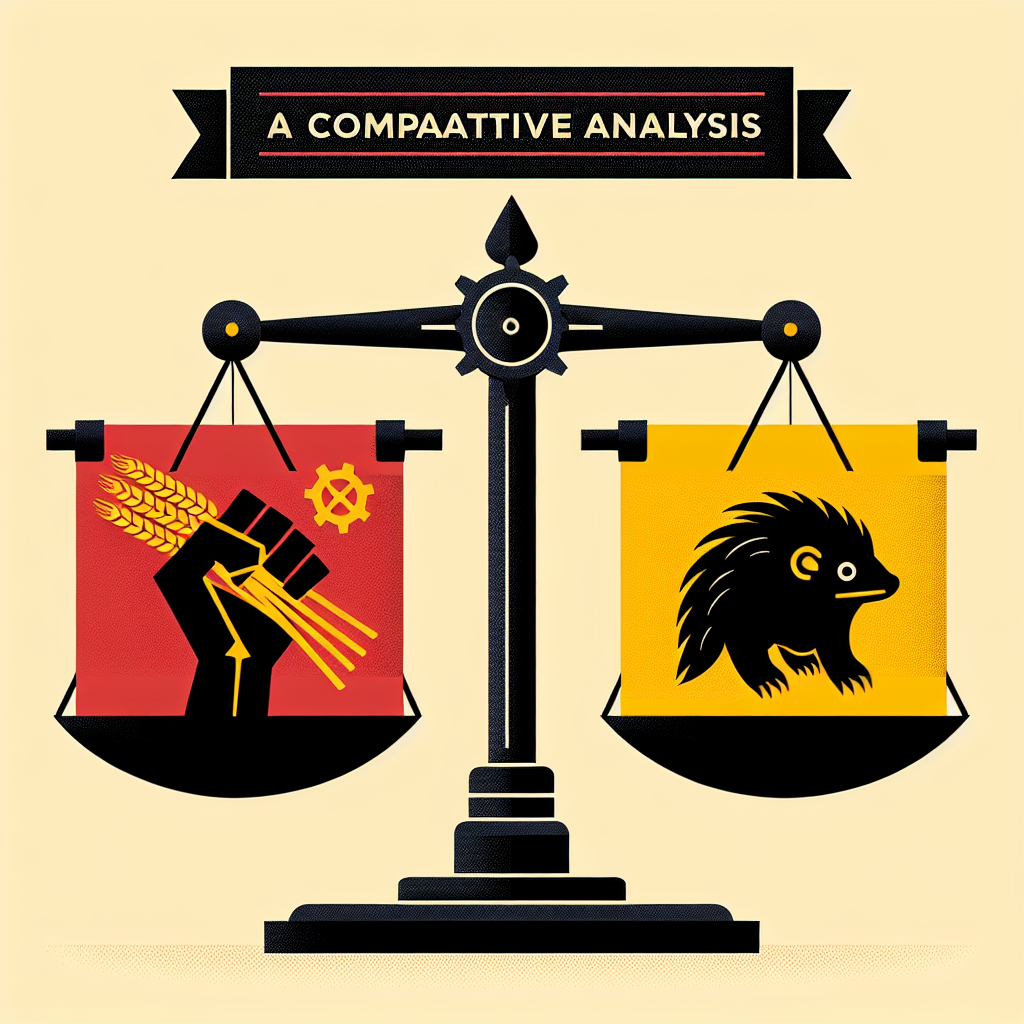Socialism vs. Libertarianism: A Comparative Analysis
Understanding socio-political ideologies is essential for grasping the complexities of modern governance. Two prominent philosophies in this realm are socialism and libertarianism. While socialism advocates for collective ownership and government control of resources, libertarianism emphasizes individual freedom and limited government involvement. This article takes a deep dive into the fundamental tenets of each ideology, their historical context, and their implications for contemporary society.
What is Socialism?
Socialism is an economic and political system advocating for collective ownership and equitable distribution of resources. It seeks to reduce income inequality and ensure that everyone has access to basic needs like healthcare, education, and housing. Socialists believe that the government should play a significant role in managing the economy to foster social welfare.
Key Principles of Socialism
- Collective Ownership: Resources and industries are owned collectively or managed by the state.
- Economic Planning: The government devises plans that aim to direct the economy toward beneficial outcomes for all citizens, rather than leaving it to market forces.
- Social Equality: A focus on reducing wealth disparities through progressive taxation and wealth redistribution.
What is Libertarianism?
Libertarianism champions individual liberty as the highest political value and advocates for minimal government intervention in both personal and economic matters. Libertarians prioritize personal responsibility and believe that free markets lead to the most efficient and just distribution of resources.
Key Principles of Libertarianism
- Individual Freedom: Emphasizes the right of individuals to make choices affecting their lives without government interference.
- Free Markets: Advocates for minimal regulation and the belief that supply and demand should dictate the economy.
- Limited Government: Supports a government whose primary role is to protect individual rights and enforce contracts rather than manage the economy.
Historical Context: Evolution of Socialism and Libertarianism
The Rise of Socialism
Socialism gained traction in the 19th century amid industrialization, which resulted in significant wealth for some while many workers faced exploitation and poverty. Key figures like Karl Marx and Friedrich Engels critiqued capitalism, arguing that a class struggle was inherent to the system. Their ideas inspired various movements and political parties worldwide, leading to the establishment of socialist states in the 20th century.
The Emergence of Libertarianism
Libertarianism found its roots in classical liberalism and emerged more distinctly in the 20th century. Thinkers like Friedrich Hayek and Milton Friedman critiqued excessive government control and highlighted the dangers of totalitarianism. The Libertarian Party was founded in the United States in 1971, making it one of the oldest and most prominent political organizations advocating for libertarian ideals.
Socialism vs. Libertarianism: Core Differences
Economic Control vs. Individual Choice
Socialists advocate for government intervention to create equity, believing that it is essential for ensuring justice in society. Libertarians counter this by arguing that government control often leads to inefficiency and infringes on personal freedom. They assert that individuals should have the autonomy to make decisions without state interference.
Role of Government
In socialism, the government is seen as a facilitator of social welfare, playing a central role in the economy. Conversely, libertarians advocate for a government that is as limited as possible, with most responsibilities relegated to the private sector. This fundamental difference affects policy decisions around healthcare, education, and economic regulation.
Wealth Redistribution vs. Capital Accumulation
Socialists argue for the redistribution of wealth to ensure that all individuals have access to essential services and a fair standard of living. Libertarians, however, see this as a violation of property rights and argue that economic growth and job creation are best achieved through capital accumulation and investment without governmental hindrance.
Contemporary Implications
Socialism in Modern Politics
Socialist ideas have gained renewed interest in recent years, particularly among younger voters in Western nations. Concepts like universal healthcare and student debt forgiveness resonate with many who advocate for social welfare. However, criticisms concerning economic feasibility and historical failures of socialist states continue to pose challenges.
The Libertarian Challenge
Libertarians have gained traction as well, particularly in the context of debates about personal liberty and privacy, particularly against state surveillance and intervention. The rise of technology firms and the gig economy has shifted some perspectives on labor and capitalism, reigniting discussions about market freedom versus regulation.
Conclusion: Choosing Between Socialism and Libertarianism
The debate between socialism and libertarianism remains a vibrant aspect of political discourse. Each ideology offers different solutions to contemporary issues surrounding governance, economics, and social welfare. Understanding their principles allows individuals to engage more meaningfully in discussions about the future of society. Whether one leans toward socialism’s collective focus or libertarianism’s defense of individual liberties, it is crucial to consider the implications of these ideologies on personal lives and broader society.
By contemplating the historical context, core principles, and modern applications of both socialism and libertarianism, we can better navigate the complexities of political beliefs and make informed choices for our communities and governments.
Share this content:












Post Comment